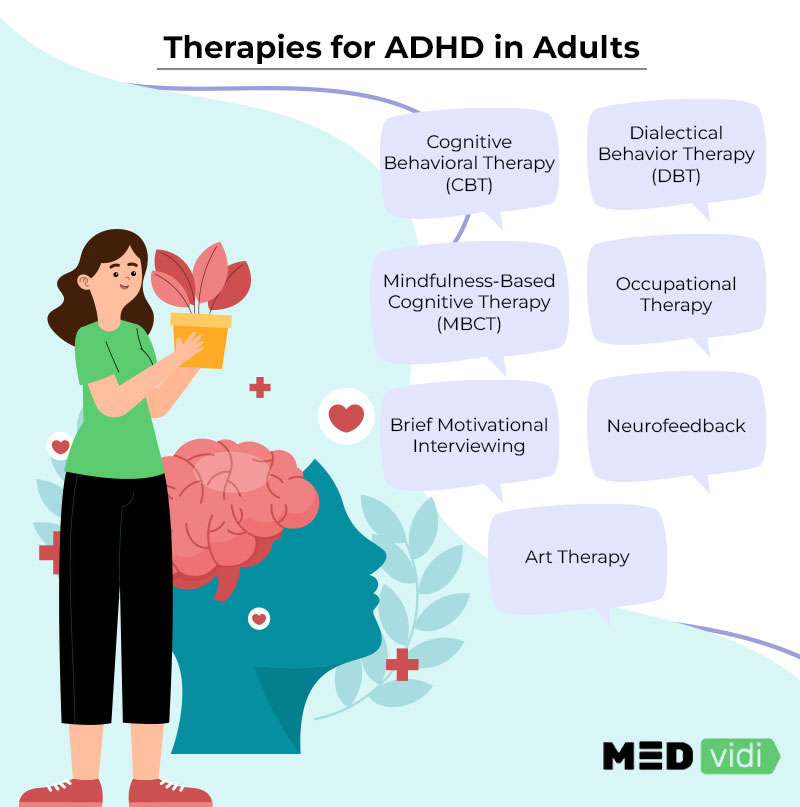Your Overview to Discovering the Right ADHD Treatment for Enduring Results
Browsing the intricacies of ADHD therapy needs a nuanced understanding of both the problem and the myriad options offered for effective management. It is necessary to recognize that what works for one individual might not necessarily produce the exact same results for an additional.
Recognizing ADHD and Its Influence

In grownups, ADHD can bring about obstacles in work environment settings, influencing performance, time administration, and interpersonal relationships. Often, undiagnosed or poorly managed ADHD can contribute to co-occurring psychological health issues, such as anxiety and depression, additional complicating an individual's general wellness.
The social understanding of ADHD can differ, bring about stigma and misunderstanding, which may prevent individuals from seeking assistance. As awareness grows, it is necessary to foster an environment that promotes understanding and assistance for those impacted by ADHD, highlighting the demand for precise medical diagnosis and tailored methods to minimize its effect on everyday life.
Review of Treatment Alternatives
A comprehensive method to treating ADHD encompasses a variety of options tailored to the person's unique requirements. These options can extensively be classified into behavior interventions, psychoeducation, and lifestyle adjustments, along with pharmacological treatments that may be discovered later.
Behavior interventions, such as cognitive-behavioral therapy (CBT), focus on modifying details actions and developing coping methods to take care of signs and symptoms successfully. Psychoeducation plays a critical function in equipping both people and their family members by providing details regarding ADHD, its obstacles, and effective strategies for support.
Way of life adjustments can considerably influence ADHD management. Routine exercise, a well balanced diet regimen, and adequate rest contribute to overall well-being and symptom control. Mindfulness methods and relaxation techniques can also boost emphasis and reduce impulsivity.
Support system and family members treatment can foster a feeling of community and understanding, helping individuals feel less separated in their experiences. Each treatment option should be considered along with the individual's preferences and scenarios, guaranteeing an all natural method that promotes long-term success. Ultimately, the objective is to create a customized therapy plan that addresses the specific difficulties related to ADHD while boosting general lifestyle.
Medicine: Benefits And Drawbacks
Drug plays More Bonuses a critical duty in the therapy of ADHD, with various choices readily available that can significantly ease signs and symptoms for several individuals. Stimulants, such as methylphenidate and amphetamines, are commonly suggested and have shown efficiency in enhancing emphasis, minimizing impulsivity, and improving general behavior. These medications function by boosting dopamine and norepinephrine degrees in the mind, which are typically dysregulated in those with ADHD.
Nevertheless, using drug is not without its challenges. Some people may experience side results, consisting of sleeping disorders, decreased hunger, or increased stress and anxiety. Locating the best dosage can be an experimental process, needing close tracking by medical care experts. Furthermore, not all patients reply to energizer medications, leading some to explore non-stimulant options, which might have a delayed start of action or different negative effects.
It is vital for people and their family members to consider these advantages and disadvantages very carefully. Balancing the advantages of signs and symptom monitoring against potential negative effects is important for attaining optimal treatment outcomes. Collaboration with healthcare service providers can promote enlightened choices, making certain that medicine is component of an extensive ADHD management plan.
Behavioral Treatment Methods

One typically employed method is Cognitive Behavior Treatment (CBT), which aids people determine and transform unfavorable thought patterns that add to ADHD-related obstacles. Therapist for ADHD. Via CBT, the best psychiatrist near me customers find out to set realistic objectives, take care of time effectively, and establish organizational systems
One more efficient method is Moms and dad Administration Training (PMT), which enlightens moms and dads on exactly how to reinforce favorable actions and minimize unfavorable ones with constant self-control and communication methods. This method promotes a supportive home environment that encourages behavior enhancements.
Social abilities training is additionally integral, assisting people with ADHD browse social communications a lot more properly. Role-playing and modeling suitable actions can boost social skills and minimize anxiousness in social scenarios.
Lifestyle Adjustments for Better Administration
Exactly how can lifestyle options counseling modifications dramatically enhance the management of ADHD signs and symptoms? Carrying out strategic way of living alterations can result in considerable renovations in emphasis, organization, and psychological law for people with ADHD.
First of all, developing an organized day-to-day routine assists in developing predictability, which can ease feelings of overwhelm. Constant timetables for dishes, study, and sleep can boost day-to-day performance.
Including normal physical task is also critical, as workout has actually been revealed to enhance dopamine degrees, boosting attention and motivation (Therapist for ADHD). Aiming for a minimum of 30 minutes of moderate exercise most days can be valuable
Nutrition plays a critical duty too. A balanced diet rich in omega-3 fatty acids, whole grains, and protein can support cognitive feature. Restricting processed sugars and caffeine may minimize symptoms, as these can lead to power accidents and irritation.
Final Thought
To conclude, discovering the best ADHD therapy requires a diverse strategy that considers individual needs and preferences. A mix of medicine, behavior therapy, and lifestyle modifications can significantly boost sign management and overall well-being. Participating in psychoeducation and developing structured regimens better supports effective therapy approaches. Partnership with health care professionals and open interaction with support networks are crucial parts in navigating the intricacies of ADHD monitoring, ultimately bring about long lasting results and boosted high quality of life.